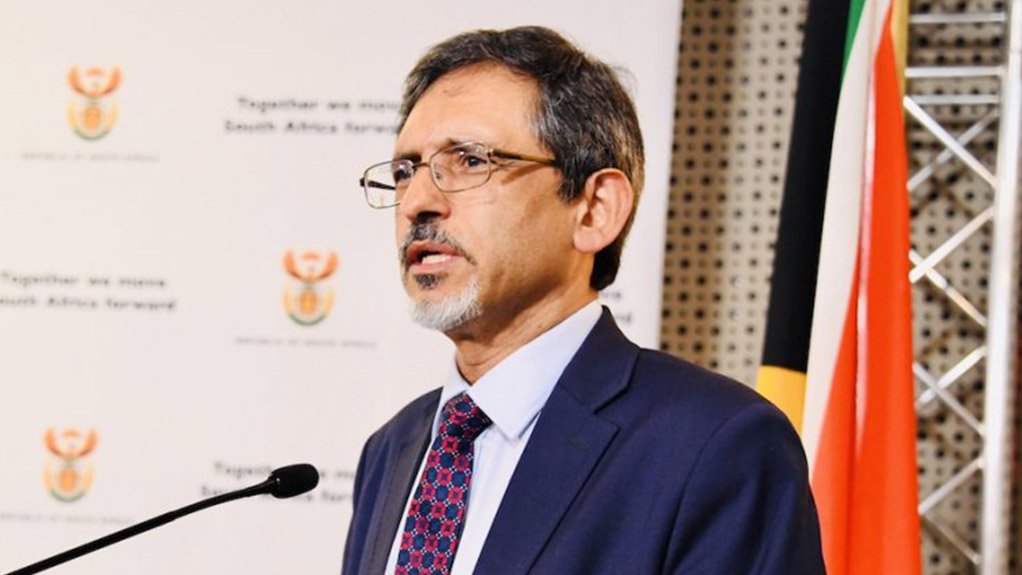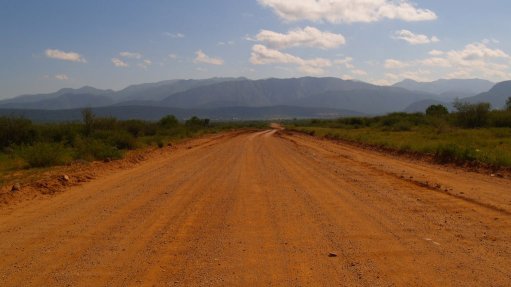Patel says vision for R200bn in additional localisation has top-level corporate backing
Trade, Industry and Competition Minister Ebrahim Patel announced that an “accord” had been reached at the National Economic Development and Labour Council (Nedlac) to drive progressive localisation of up to R200-billion of additional production over a five-year period.
Delivering his virtual Budget Vote, Patel said the strategy had the support of major corporates and that 30 ‘CEO champions’ – including Mamongae Mahlare of Illovo, Mark Cutifani of Anglo American, Vikesh Ramsunder of Clicks, Fleetwood Grobler of Sasol and Fortune Majapelo of Bushveld – had been nominated from the private sector to support the localisation push.
“An initial list of 42 products have been identified for localisation and R240-million has been raised from the private sector to appoint technical experts to drive localisation, bringing together industrial engineers, supply-chain managers, experts in dealing with illegal imports, and project managers.”
The CEO champions would not only advocate for specific product categories for potential localisation, but would also highlight the current constraints to domestic production.
No 'one-size-fits-all' approach would be implemented and Patel revealed that the pact with business also recognised that not every product category was suitable for localisation.
A ‘Policy Statement on Localisation for Jobs’ had also been published to clarify government’s overall approach to the issue.
The policy statement addressed local product development, cracking down on illegal imports and under-invoicing and implementing localisation modalities through a joint effort with the private sector.
“This will be complemented by integrated efforts with other Ministries to drive local vaccines development and the use of local components in the national infrastructure plan.
“Tariff adjustments and rebates are an important policy instrument available to the State to lower or increase import duties, but in future will need to be accompanied more clearly by binding commitments by applicants to improve their competitiveness, create jobs and price restraint,” Patel added.
The so-called Nedlac accord had been premised on an analysis showing that South Africa’s import to gross domestic product (GDP) ratio was too high, with R1.1-trillion in non-oil imports yearly ahead of the Covid-19 pandemic.
“We import goods worth 25% of our GDP – our propensity to import is out of line with peer countries and developed economies and more can sensibly and sustainably be produced locally. Compare our 25% with China at 14%, India at 16%, Brazil 10%, the US at 12% and the EU at 14%,” the Minister said.
The accord was given further impetus by the progress made in developing local production capacity for personal protective equipment and medical products since the onset of the pandemic.
“In the past year, we built local production capacity – often from scratch – with more than R10-billion of local production of Covid-19 products, ranging from face-masks, hand sanitisers, ventilators and vaccines,” Patel said, reporting that R2-billion of that production was exported to other African countries.
UNDER THE RIGHT CONDITIONS
In response to Patel’s indication to Nedlac in December that government would be aiming to set an import-substitution target of 20% for non-petroleum imports, Business Unity South Africa (Busa) and Business Leadership South Africa (BLSA) commissioned Intellidex to research the practicality of meeting the target.
The research report, which was published the day before Patel’s Budget Vote, indicated that higher levels of localisation were possible “under the right conditions”, including policy certainty demand consistency.
It also warned that an overly aggressive import-substitution policy will have negative consequences for domestic prices, raising them by up to 20%, and could undermine the country’s economic recovery.
“Our quantitative study shows that under the right conditions, meeting localisation targets within the next five years is possible for a number of key manufacturing sectors including paper, wood, motor vehicles, ceramic products, glass, basic iron and steel, and food and beverages.
“[But] other manufacturing sectors are highly unlikely to meet localisation targets without significant policy support and macroeconomic tailwinds. These sectors include printing and publishing, textiles, clothing, footwear, rubber and machinery and electronic equipment,” the report stated.
Busa and BLSA urged that priority be given to outputs such as cheaper energy, better infrastructure, improved competitiveness and consumer choice when pursuing the strategy.
Patel acknowledged that localisation should be rooted in competitiveness and industrial agility and indicated that the emerging sector master plans would contain the details of how to achieve such in the various industries covered.
“Last year we had three master plans in place, covering the auto, clothing and poultry
industries. Since then, we finalised three more, covering sugar, steel and furniture.
These Master Plans cover about 700 000 workers with a combined industrial output of about R300-billion.”
Patel said future master plans would seek to support growth in new economic sectors, while consolidating existing sectors.
HYDROGEN & ELECTRIC VEHICLES
The extended portfolio will cover global business services, film animation, the chemical and plastic sectors, green industry, medical products and capital goods.
Particular attention would be given to green industrialisation and facilitating a just transition to a more climate-resilient economy.
“We must recognise the urgency of the situation and take action accordingly. We must not get left behind, with stranded assets and a carbon-dependent economic model,” Patel said, highlighting the urgent need to build full electric vehicles locally so as to maintain the country’s capacity to export to key markets such as the EU and UK.
Patel also saw a major opportunity for South Africa to advance technologies based on green hydrogen, which is produced by using renewable electricity to split water into hydrogen and oxygen using an electrolyser.
He reported that Toyota's Johan van Zyl, who has returned to South Africa following a stint in Europe, would head a panel on green hydrogen, which would focus primarily on what was required for South Africa to unlock a large-scale domestic hydrogen industry.
“If the 20th century becomes known as the century of crude oil and nuclear energy, the 21st century may be known as a century of renewable energy and green hydrogen.
“South Africa is well-positioned to become a key player, with our reserves of platinum group metals used as a catalyst in green hydrogen fuel-cells; as well as vanadium used in battery storage technologies.”
Article Enquiry
Email Article
Save Article
Feedback
To advertise email advertising@creamermedia.co.za or click here
Announcements
What's On
Subscribe to improve your user experience...
Option 1 (equivalent of R125 a month):
Receive a weekly copy of Creamer Media's Engineering News & Mining Weekly magazine
(print copy for those in South Africa and e-magazine for those outside of South Africa)
Receive daily email newsletters
Access to full search results
Access archive of magazine back copies
Access to Projects in Progress
Access to ONE Research Report of your choice in PDF format
Option 2 (equivalent of R375 a month):
All benefits from Option 1
PLUS
Access to Creamer Media's Research Channel Africa for ALL Research Reports, in PDF format, on various industrial and mining sectors
including Electricity; Water; Energy Transition; Hydrogen; Roads, Rail and Ports; Coal; Gold; Platinum; Battery Metals; etc.
Already a subscriber?
Forgotten your password?
Receive weekly copy of Creamer Media's Engineering News & Mining Weekly magazine (print copy for those in South Africa and e-magazine for those outside of South Africa)
➕
Recieve daily email newsletters
➕
Access to full search results
➕
Access archive of magazine back copies
➕
Access to Projects in Progress
➕
Access to ONE Research Report of your choice in PDF format
RESEARCH CHANNEL AFRICA
R4500 (equivalent of R375 a month)
SUBSCRIBEAll benefits from Option 1
➕
Access to Creamer Media's Research Channel Africa for ALL Research Reports on various industrial and mining sectors, in PDF format, including on:
Electricity
➕
Water
➕
Energy Transition
➕
Hydrogen
➕
Roads, Rail and Ports
➕
Coal
➕
Gold
➕
Platinum
➕
Battery Metals
➕
etc.
Receive all benefits from Option 1 or Option 2 delivered to numerous people at your company
➕
Multiple User names and Passwords for simultaneous log-ins
➕
Intranet integration access to all in your organisation




















